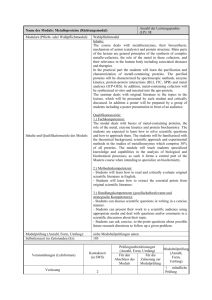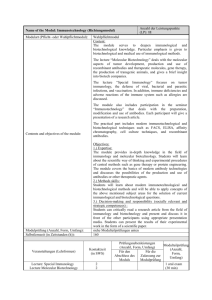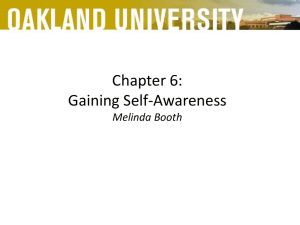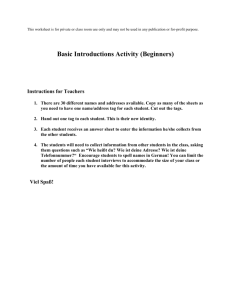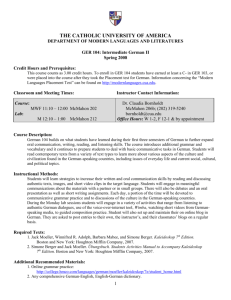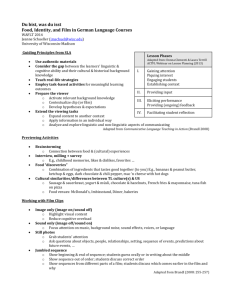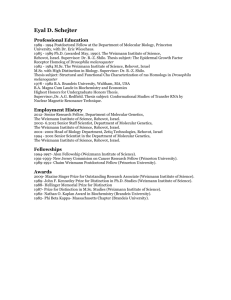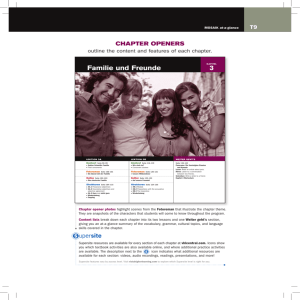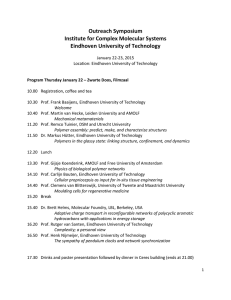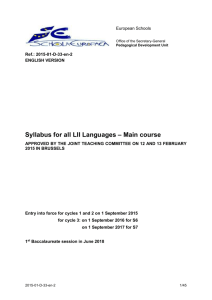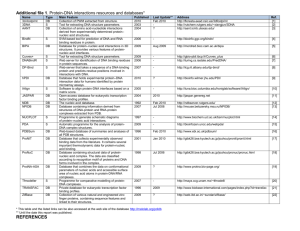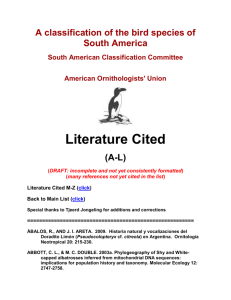Name des Moduls: Molecular Plant Pathology (Wahlpflichtmodul
advertisement
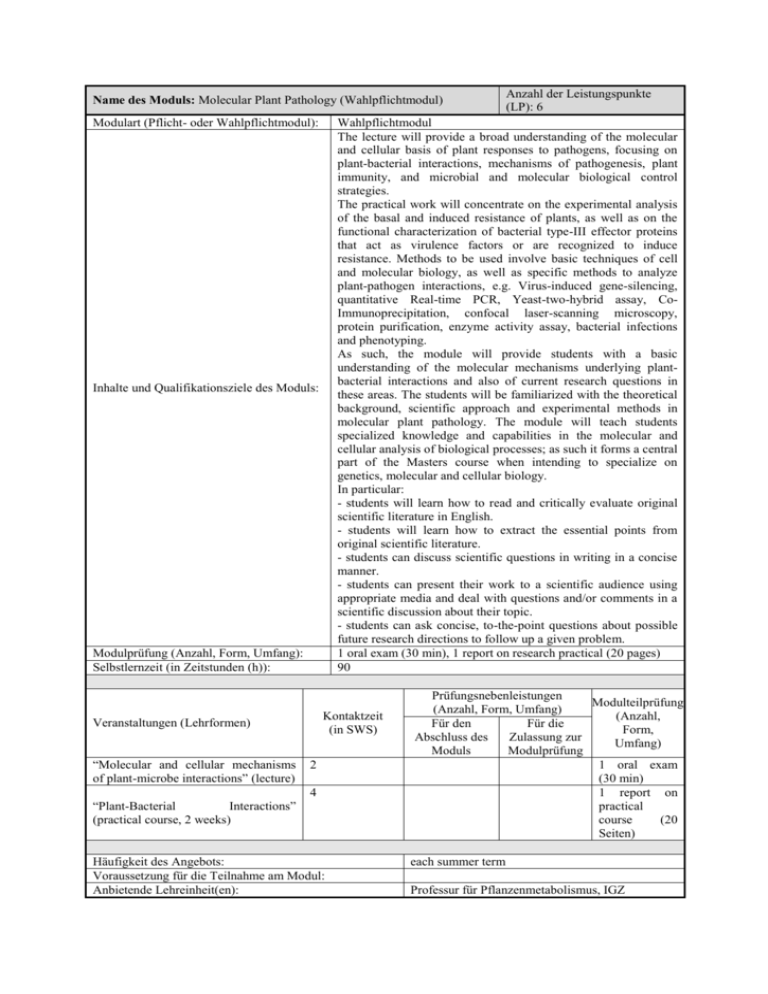
Name des Moduls: Molecular Plant Pathology (Wahlpflichtmodul) Modulart (Pflicht- oder Wahlpflichtmodul): Wahlpflichtmodul The lecture will provide a broad understanding of the molecular and cellular basis of plant responses to pathogens, focusing on plant-bacterial interactions, mechanisms of pathogenesis, plant immunity, and microbial and molecular biological control strategies. The practical work will concentrate on the experimental analysis of the basal and induced resistance of plants, as well as on the functional characterization of bacterial type-III effector proteins that act as virulence factors or are recognized to induce resistance. Methods to be used involve basic techniques of cell and molecular biology, as well as specific methods to analyze plant-pathogen interactions, e.g. Virus-induced gene-silencing, quantitative Real-time PCR, Yeast-two-hybrid assay, CoImmunoprecipitation, confocal laser-scanning microscopy, protein purification, enzyme activity assay, bacterial infections and phenotyping. As such, the module will provide students with a basic understanding of the molecular mechanisms underlying plantbacterial interactions and also of current research questions in these areas. The students will be familiarized with the theoretical background, scientific approach and experimental methods in molecular plant pathology. The module will teach students specialized knowledge and capabilities in the molecular and cellular analysis of biological processes; as such it forms a central part of the Masters course when intending to specialize on genetics, molecular and cellular biology. In particular: - students will learn how to read and critically evaluate original scientific literature in English. - students will learn how to extract the essential points from original scientific literature. - students can discuss scientific questions in writing in a concise manner. - students can present their work to a scientific audience using appropriate media and deal with questions and/or comments in a scientific discussion about their topic. - students can ask concise, to-the-point questions about possible future research directions to follow up a given problem. 1 oral exam (30 min), 1 report on research practical (20 pages) 90 Inhalte und Qualifikationsziele des Moduls: Modulprüfung (Anzahl, Form, Umfang): Selbstlernzeit (in Zeitstunden (h)): Kontaktzeit (in SWS) Veranstaltungen (Lehrformen) “Molecular and cellular mechanisms of plant-microbe interactions” (lecture) Anzahl der Leistungspunkte (LP): 6 2 4 “Plant-Bacterial Interactions” (practical course, 2 weeks) Häufigkeit des Angebots: Voraussetzung für die Teilnahme am Modul: Anbietende Lehreinheit(en): Prüfungsnebenleistungen Modulteilprüfung (Anzahl, Form, Umfang) (Anzahl, Für den Für die Form, Abschluss des Zulassung zur Umfang) Moduls Modulprüfung 1 oral exam (30 min) 1 report on practical course (20 Seiten) each summer term Professur für Pflanzenmetabolismus, IGZ
